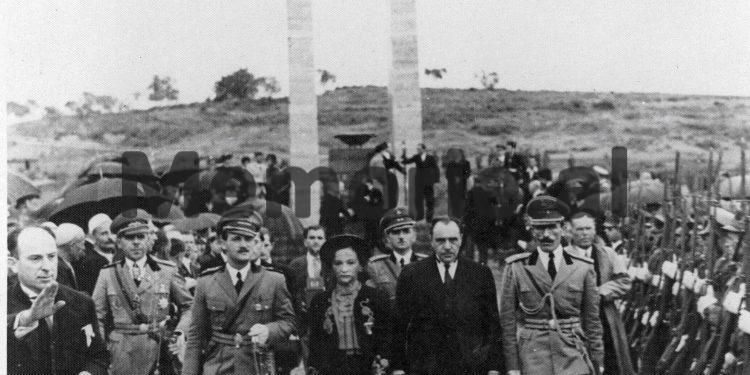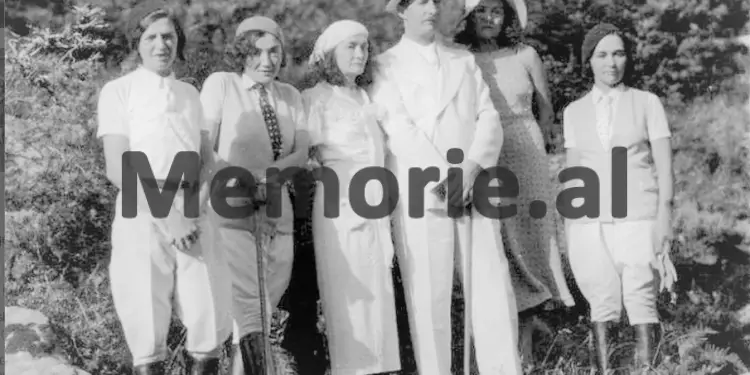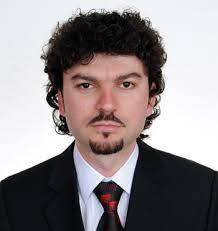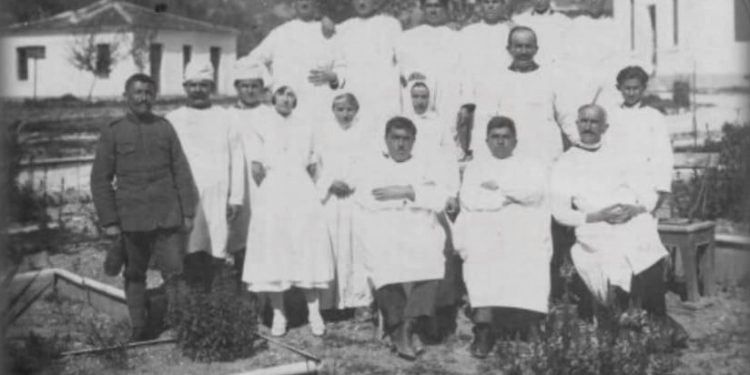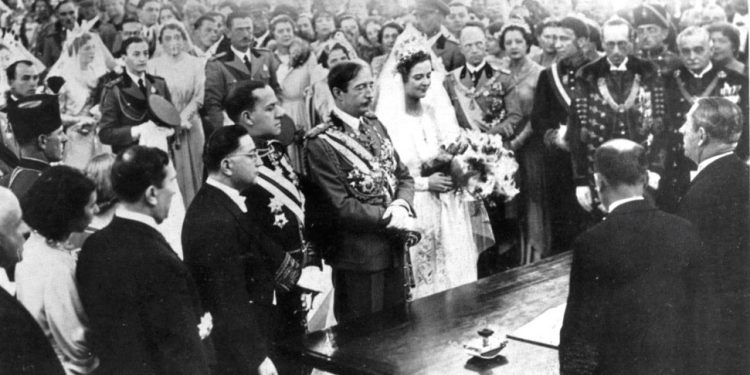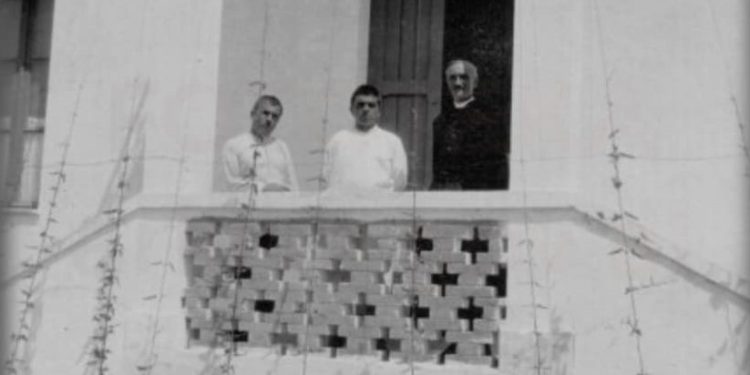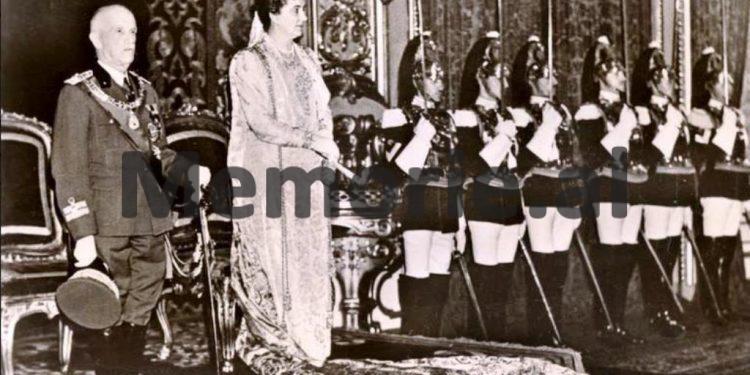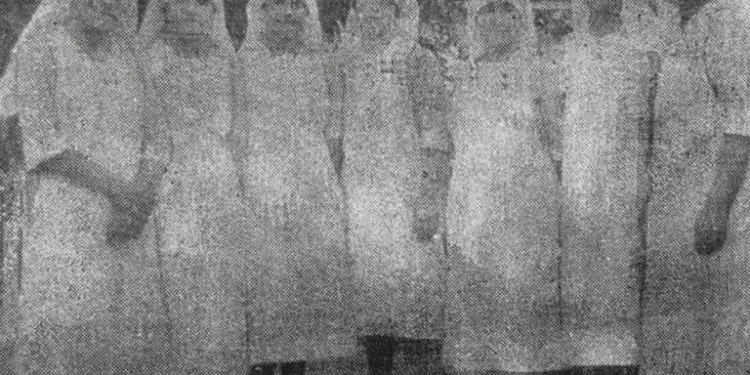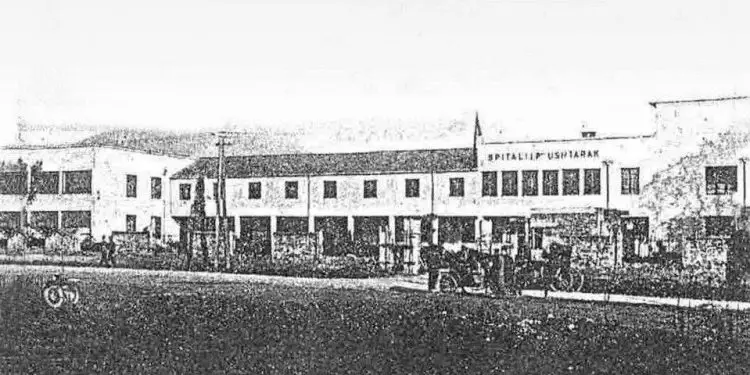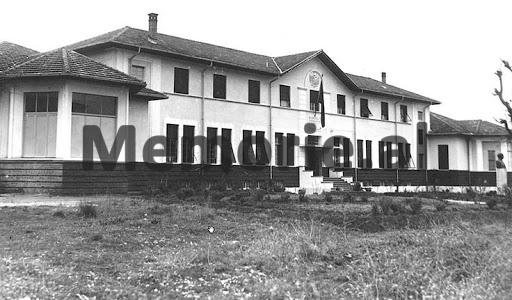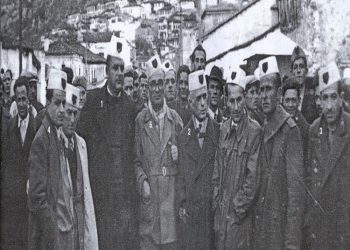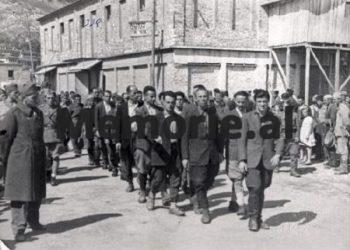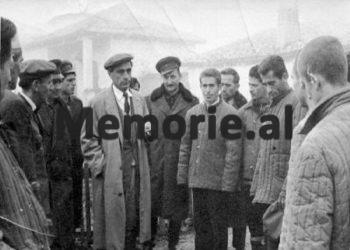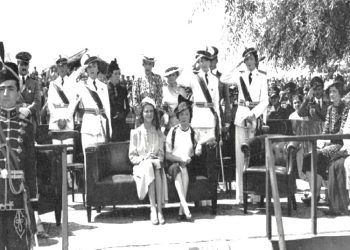By Albert Hitoaliaj
– Spiro the Priest, the doctor who cured hundreds of patients and could not save himself, but died while experimenting the diabetes cure on his body!-
Memorie.al / While the Albanian student graduated with the Gold Medal for Medicine, handing it over to the king of Italy, Victor Emmanuel III, he refused the offer to be employed in the clinics of the neighboring country, choosing to exercise of the profession in his hometown. Spiro Prifti, the young doctor, would first start the work by establishing the first courses for nurses and after he would create the necessary experience in this field, he would be selected to serve as a doctor at the Royal Court. Meanwhile, he would be among the first in the group of white shirts of our country, who would establish the Military Hospital, and he would even perform the task of its main manager for a while. In the following, the doctor who graduated in Naples would become the professor of the later generation, of some of the personalities of Albanian medicine.
More than that, the doctor from Kavaja would become known in the Albanian public, for his extraordinary contribution to the cure of malaria, measles, whooping cough and a number of infectious diseases, which during that period had become massive and dangerous. ..! This is how the biography of Spiro Prifti, the doctor who would win battles one after another, for the healing of hundreds of patients, and finally go out like a candle, experimenting on his own body, the new cure for the disease of diabetes, would flow like this which he studied for years.
The genesis of the journey to serve people
Bringing back the memories of the life of the doctor who graduated in Naples, where the degree was presented to him by the King of Italy himself with the ‘Gold Medal’, Stefan Prifti, one of his grandsons, wants to make a short parenthesis, which is about with the context in which the family of Spiro Priest settled in Kavaja. “The trigger for this,” he confesses, “was the desire of his father, Anastas, who, after finishing his higher studies in Thessaloniki, decided to make his contribution to Albania and his Albanian compatriots. And he left here, with the sole aim of religious service to his brothers of the same blood.
He settled in Kavaje, becoming the first priest in its largest church, newly built in the center of the city, where he would soon become known to all the inhabitants of the city for his charitable spirit and brotherly spirit in his relations with them. . He inherited the desire to serve people with special care in his children, whom he educated with a sense of humanity and love for people. Among them, Spiroja stood out the most, because with the high results in school and the interest he showed towards education, he became one of the most famous names not only in the circle of young people of Kavaja, but also beyond it!
A chance to study in Italy, an opportunity to shine among others
Learning foreign languages since he was small and graduating high school with honors gave Spiros the chance to choose his favorite branch in university studies. From the memories of the grandson, Stefan Prifti, it is noted that the leaders of the Municipality of Kavaja, who had closely followed the progress of Anastas’s son, decided to offer him the right to study abroad, in the field of medicine, where part the main part of the stock exchange, would be repaid from the municipal finances. In these conditions, Spiro found the invitation to continue his studies in Italy.
His older brother, Theodhori, would remember years later the moments when Spiroja left for studies, when Anastasi, his father, sent him to Italy, with the only concern and advice, to become a talented doctor and, to serve people in such a noble and honorable profession. And the promise that would give those moments to his father, would follow him back throughout the entire period of studies, even the student from Kavaja, would go beyond this objective. Thus, the beginning of studies for medicine, chemistry and pharmaceuticals in Naples, Italy, marked for the student from Kavaja, a challenge that he had to overcome indisputably. At that time, in the neighboring country, they studied with dozens of other Albanians.
Spiro, during his years of study in Italy, showed that he belonged to a category of people who were determined to be the best. However, for the young man from Albania, something remained unfulfilled, something that had nothing to do with the excellent results of his studies. It was precisely a promise he had made before leaving for Italy, which pushed him to achieve maximum results and to return to serve his country with devotion, in the service of the people. He had transformed this wish into a promise at the moment of departure and as such, he would remember it throughout his school years. He completed his studies and his results did not go unnoticed.
Spiro was not a young man, who had finished with good results at the University of Naples, branch of Medicine, but the best student who had achieved the highest results during all the years of the faculty. “Among foreign students in Italy, Spiro Prifti received the most positive evaluations. His name became one of the names of sensational characters in the press of the time in Italy, for the excellent results he achieved in all subjects”, underlines one of the most vocal researchers of Albanian medicine, Professor Flamur Tartari, who recalls, that; even though they offered him places in the most famous clinics in Italy, he refused, only to fulfill the promise given, to serve his blood brothers.
Spiro Papanastasi from Kavaja and Albanian medicine would thus be included in the media noise of the time, since then he counted his doctors with the fingers of one hand, as a rare case, but also as an unprecedented moment, which echoed in the list of contributors. Spiro Prifti returned to his homeland with many dreams and dedication, to offer people the necessary service in the name of life. He came back in a hurry, without even getting the official documentation, which has to do with the bureaucracies of the case. He didn’t even wait to participate in the ceremony, where Viktor Emanueli III himself would give him the gold medal…!
Balkan disregard, Western correctness!
The Gold Medal comes in a strange package. While he would be wanted by many European clinics, Spiro would choose poor Albania to serve him. First, he started working in the medical center, which at that time was supposed to become the Military Hospital. Although he thought he had finished his studies and, at the same time, his obligations to the Italian institutions, the latter did not think like him. Spiroja had finished with excellent results and had received the diploma, a document which seemed completely sufficient to practice the profession. For him, this was enough to return to Albania as soon as possible, and to put to use the knowledge and experience he had accumulated over the years.
Meanwhile, the very good results with which Spiro Prifti had completed his university studies, had attracted the attention of all the authorities of the faculty, but also of the high state institutions, which valued with special preoccupation those who shined among others. He was declared the best student, of all foreign students who qualified in Italy, and as such, he deserved the Gold Medal, a medal which, according to the official protocol, was awarded by the king of Italy, Victor Emmanuel III. This meant a lot for the newly graduated Albanian doctor, as well as for others. Yes, Spiro Prifti, thought that time was not waiting and hurried to return to his homeland, to join the profession he loved so much. However, modesty and disdain would not be enough for him to remain without receiving what was due to him. Even the incident, there was no way to remain on the periphery of the opinion of the time…!
It was the year 1930, when a somewhat strange package would arrive at the Kavaja post office. The family members still keep it today. It was a package in the form of a tube, made of yellow cardboard, which carried several stamps and stamps of the Italian post office. The medal awarded to Spiros by Victor Emmanuel III himself was wrapped with it. On behalf of the King of Italy, Spiro the Priest was honored with the title of academic value, Doctor in Chemistry-Pharmaceuticals, a title not for practicing a profession, but for honoring and highlighting values. It was the first time that an academic title like this came by mail, in a package where the recipient’s name was usually written on top; Spiro Papanastasi – Kavaje.
But the doctor, who was awarded an academic title by the King of Italy himself, would not devote much time to this event, which was not insignificant anyway, but would devote himself to work to add to it other successes, not only in the field of professional studies, but especially in unsparing humanism, at the service of people’s lives. In the meantime, he would continue his postgraduate studies in Arabia. In the prominent achievements that he would mark further in the studies in the field of medicine and pharmaceuticals, he would give up especially the mastery of foreign languages, such as; English, French, Italian, Greek and Arabic.
Fate never lacks irony…!
The doctor who could not heal the last patient, himself…! In the documents kept by family members, but also by medical researchers, it is proven that Spiro, in addition to practicing the profession of a doctor, also opened courses for pharmaceuticals, which he extended beyond Albania, in Folloria of Thessaloniki, Greece. This is the reason why he is known as the first creator of the pharmaceutical service in our country, but also of the expansion of the pharmacy network in Greece. Even to this day in Greece, there are several pharmacies that bear the inscription “Danis”, the name of a relative of Spiros, with whom he opened several such at the time.
In those years, Spiroja would work in the royal court and in the royal school he would give lectures as a professor of medicine. Also, in those years he would be known not only as a skilled and tireless doctor, but also as a simple man who always found time to devote to the younger generation. Not only in Tirana, but also in Durrës and Kavajë, he would constantly go to secondary schools and conduct conversations and lessons with students.
Medicine was the passion of life for Spiro and as such, it pushed him to always look for new results and to find solutions when they were missing. Having such a passion, he devoted a lot of time to research in the field of folk medicine, mainly medicinal plants. In all the visits he made to Greece, he never used the car that the Royal Court had given him. In Korçë, after the car journey from Tirana, he took his horse and traveled with it until he reached Thessaloniki, to his relatives. These were not trips to pass the time, or to see the natural beauties. Spiroja had been working on the collection of medicinal plants and studying their effects, also based on popular experience. The result of these researches also brought the publication of the book: “Popular medical advice of vegetation”.
However, the manuscript, which was the main volume of the work and contained Spiros’s observations of patients, diseases, plants and medicines, was never published. “It was a large register, filled with handwriting and titled; ‘The world of microbes’. We have had it at home for a long time. I remember we gave it to a friend of uncle’s to read, but the latter died, and the children did not know how to give an answer about the book. So all that work he had done over the years was lost”, says Stefan Prifti, the son of Theodhor, Spiro’s brother.
In the last days of his life, Spiroja, unable to publish it, left it to his family members to deal with its publication. “It needs some corrections, since I wrote it by hand and didn’t make the final corrections,” he told his brothers and father those days when he found out that there was nothing he could do to save his life. Spiroja, after years in the service of medicine and people, managed to relieve suffering and heal many people, but unfortunately, he did not manage to help himself. He was affected by the disease of diabetes and this disease became the impetus for him to start a research work, in achieving the creation of a medicine, which would eventually eradicate this disease and cure the patient once and for all. His research culminated in testing a drug on himself!
It was 1939 and Spiroja had tested the medicine on himself, which he thought would give results against diabetes. Unfortunately, the results began to worsen his condition and that same year, he died. He fought to defeat a disease, for which even today, more than 80 years after his death, no definitive cure has been found. His funeral would be attended by everyone from the common people who loved and respected Dr. Spiron to King Zog. It was the last honor, for a man who knew how to keep a promise, that of service to people.
Who is Spiro Priest?
Spiro Prifti (or Papanastasi) was born in Kavaja in 1893. His father, Anastasi, was the first priest of the main church of Kavaja. Pope Anastasi, as they called him, came to this position after studying in Thessaloniki, where he completed all the qualifications for theology and served with wisdom and dignity for years. During this time, he did not for a moment sever ties with his compatriots, the Arvanites, who lived in different parts of Greece. More than the memories of the youth, which was spent with them during schooling, in these spiritual connections, the motif of patriotism had a special place, which warmed the hearts of Albanians who were languishing in foreign lands. With this spirit, he also educated the children he gave birth to and raised in Kavaja.
With the constant request and care of his parents, Spiro finished high school in his hometown with excellent results. It was his father’s insistence that he apply to continue his higher studies abroad, in one of the branches that directly served the many problems of the people. Spiro’s request, based on high results in lessons, found favor with the official authorities and thanks to their contribution, he went to study at the Medical University of Naples. There he excelled again, and even finished his studies deserving of the gold medal, which was signed by the king of Italy, Victor Emmanuel III.
From here, after rejecting the offer of prestigious clinics in Italy, he returned and practiced his profession in his homeland, where he immediately became known and loved by people. In the chronicles of the time, his special contribution is evidenced, especially for the healing of infectious diseases, so widespread during that period. For the name and the good reputation he made while exercising his profession in the service of people, he was selected as the first doctor of the Royal Court and one of the founders of the Military Hospital of Albania. In the encyclopedia of Albanian medicine, he is known differently, as one of its pioneers, a designation made by the former King of the Albanians, Ahmet Zogu himself.
Ahmet Zogu: Honor and gratitude, the pioneer of Albanian medicine
It was the beginning of 1939, when the heart of the doctor, Spiro Prifti, stopped beating. Contemporaries from Kavaja remember the funeral ceremony for the great participation of people in it. In fact, the King of the Albanians, Ahmet Zogu, accompanied by the highest official health authorities had even come to this farewell escort. Not only that, but he would also speak with a sense of respect for the talented doctor he had known intimately.
“Spiro Prifti was the pioneer of Albanian medicine and did a lot during the exercise of his profession for the health of the citizens, without sparing anything of him”. This assessment of His Highness, as contemporaries remember, the next day occupied an important place in the press of the day. In their memories from this ceremony, the family members and relatives of Spiros single out the appreciation of King Zog, for the nobility and contributions of the Anastasi family, for the residents of Kavaja, but also for others. Apparently he knew their history well. In particular, it was impressive for him, their connection for years with the Albanians living in Greece.
Speaking about Spiro’s father, Ahmet Zogu, would mention Anastas’ dedication to serving the people in the church of Shënkolli, and that of Shënepremte in Kavajë, where he offered every moment not only the correct sermon, but also the warm word and the help of unsparing towards them. Meanwhile, the King’s attention did not escape the noble gesture of his family, who donated a part of their lands to the Kosovars forcibly displaced from their lands, who settled during that period in the district of Kavaja. Serving them, especially for Spiro who stayed by their side, curing and treating them in those moments when they were traumatized by Slavic violence, became a daily obligation. Memorie.al




